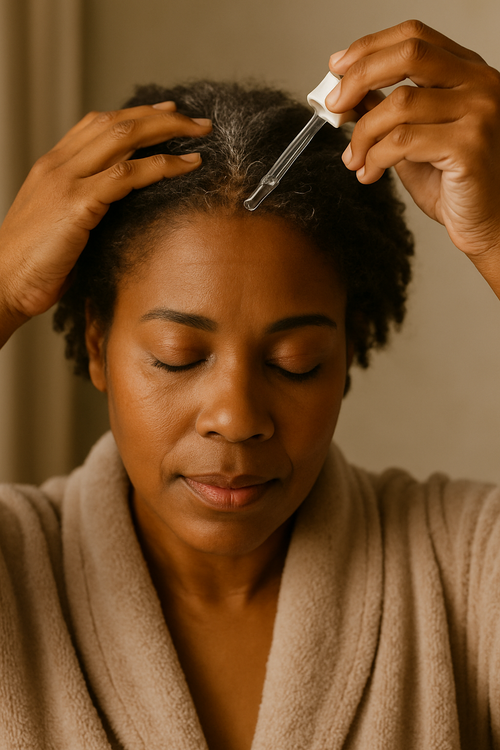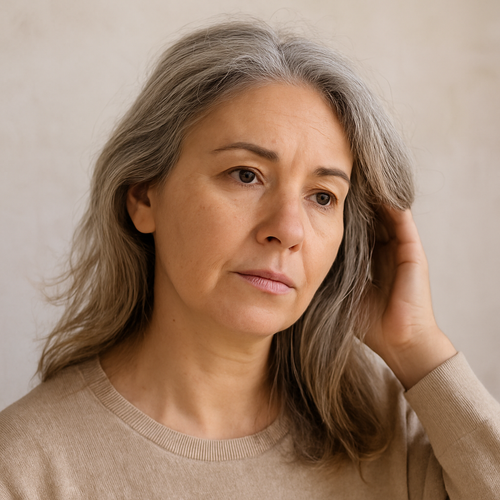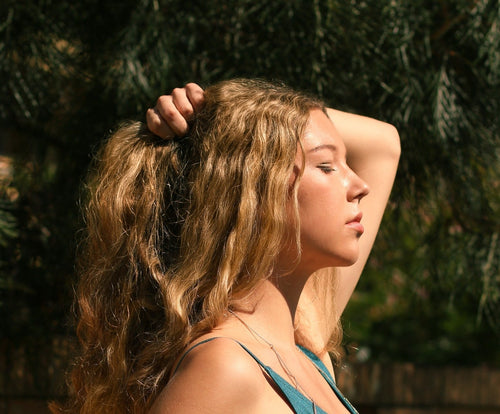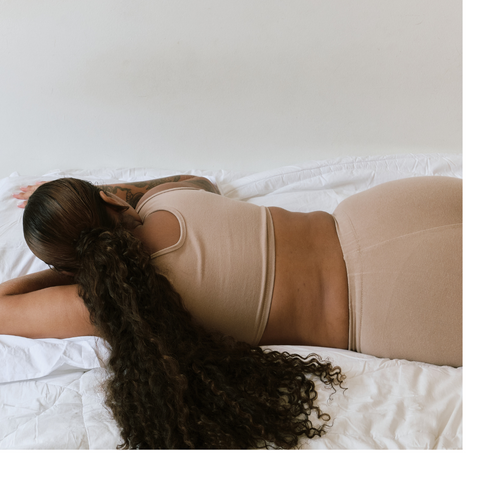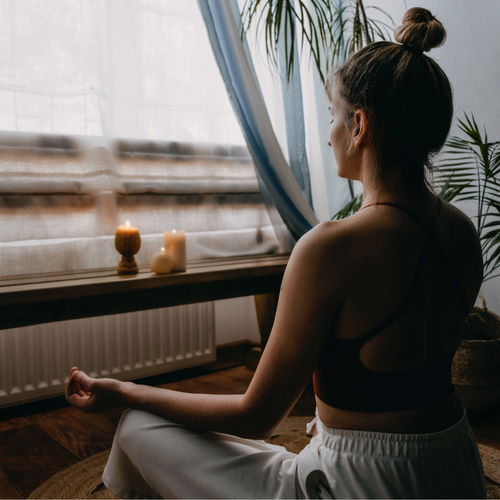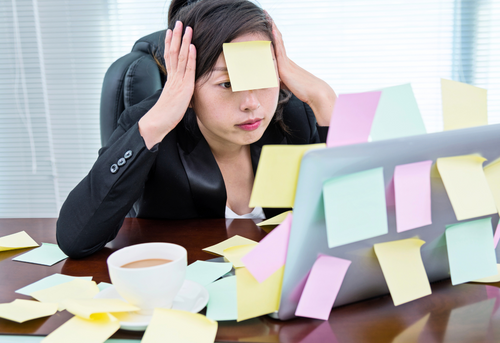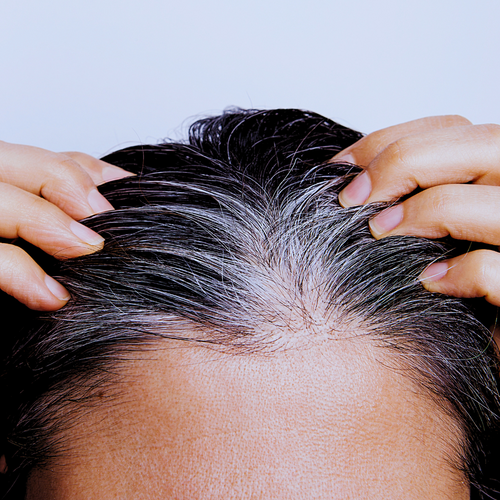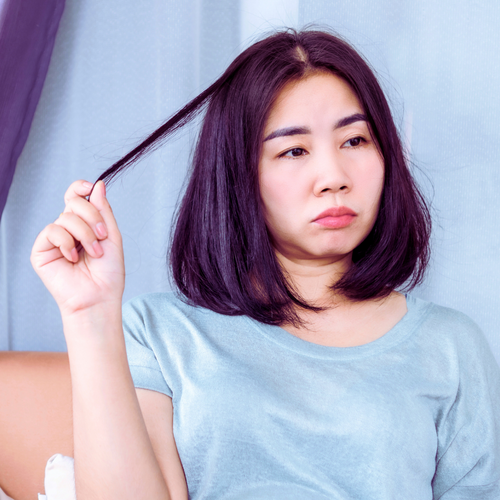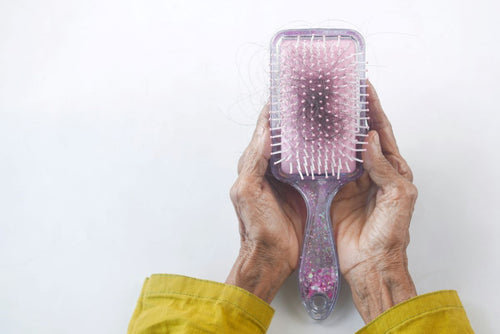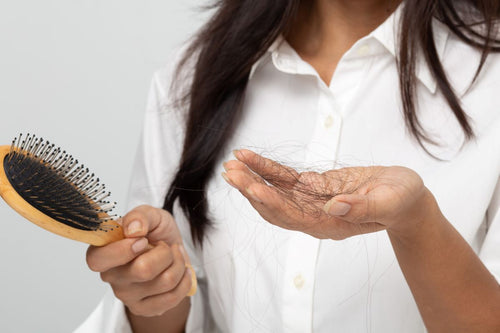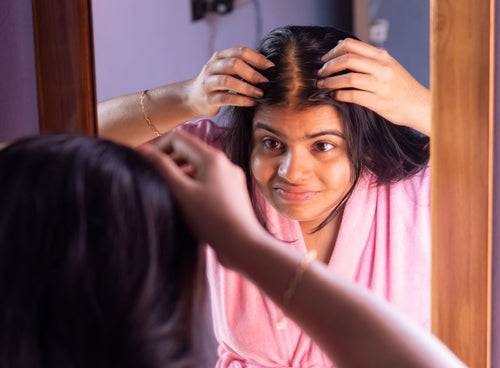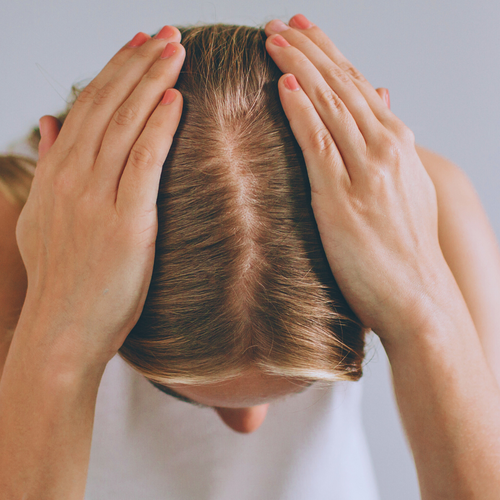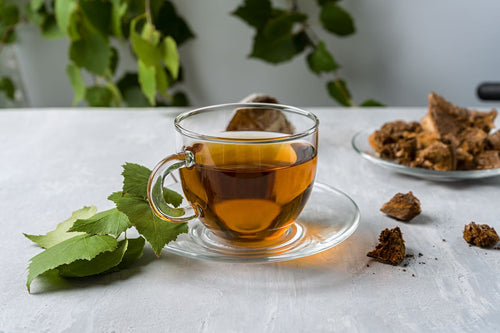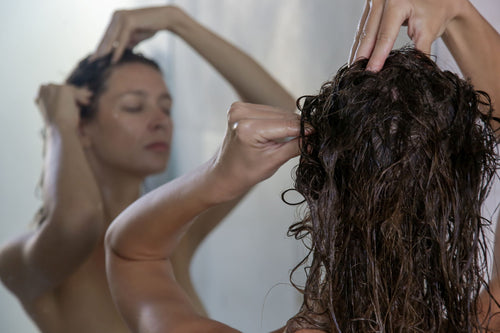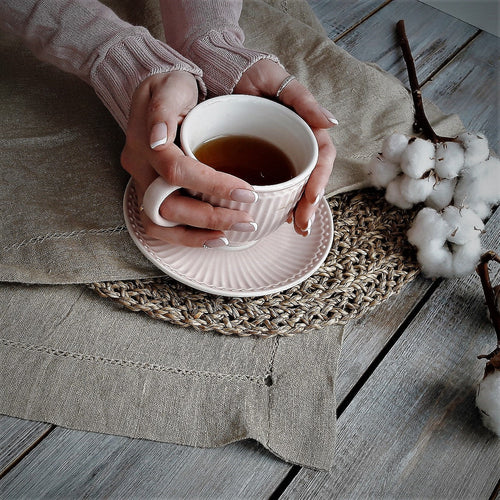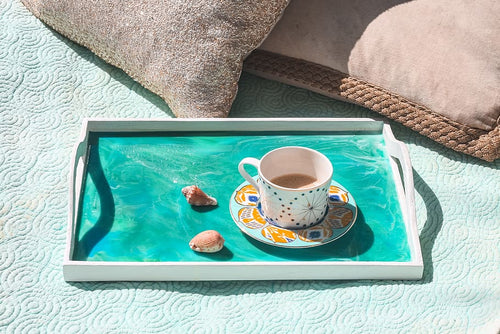Dry scalp itches. Dry scalp hurts. Dry scalp is embarrassing. Dry scalp is common. If you’re suffering from dry scalp, you’re not alone. Fortunately, there are a number of remedies that can address your dry scalp problems. Taking the initiative, discovering your dry scalp triggers and causes, and then working to treat and prevent them will help you achieve a healthy, hydrated, and supple scalp.
What is Dry Scalp?
Dry scalp is flaky scalp skin caused by scalp irritation. Dry scalp can be itchy, inflamed, and can even hurt and bleed when it is very severe. Dry scalp is caused by a lack of moisture and hydration within the scalp skin, which can lead to flaking, scaling, a tight-feeling scalp, tenderness, and irritation. Dry scalp can also lead to hair dullness, breakage, and excessive hair shedding.
Causes of Dry Scalp
Finding the root cause or triggers of your dry scalp is key to beginning to treat and prevent it. The scalp is an often ignored part of the body, but it’s important to remember that your scalp is a part of your body’s largest organ, the skin. Like the rest of your skin, your scalp reacts to external and internal stressors and triggers.
-
The Environment
Harsh weather conditions, like cold dry weather, or excessively hot temperatures, can contribute to dry scalp. Cold temperatures, harsh winds, and low humidity can make the scalp extra dry and dehydrated. Couple that with moisture-poor heated indoor air, and the scalp can suffer. Hot sunny weather can also lead to dry scalp. The scalp, like the rest of the skin is subject to sun damage from UV rays, and sun exposure can dry, burn, and irritate the scalp.
-
Hair Products
Using drying hair products can also contribute to scalp irritation and dry scalp. Some hair products contain drying chemicals and alcohols that strip the scalp of its natural moisture and damage the scalp’s natural moisture barrier. This can inflame the scalp and lead to dry scalp. Petrolatum and mineral oil in hair care products can also coat the scalp and prevent natural moisture from hydrating the scalp, leading to dry scalp. Excessive heat from blow dryers and flat irons can also dry out the scalp and cause irritation.
-
Psoriasis
Psoriasis is a common inflammatory condition that affects more than 3% of the US population. It’s a common cause of dry scalp and scalp irritation. Inflammation in the skin can lead to excess flaking, dryness, tightness , and even bleeding in the scalp.
-
Eczema
Eczema is a very common skin condition that causes dry, itchy skin. Since it affects the skin, it can also cause dry scalp, flaking, and itching. Some types of eczema can be triggered by weather, certain chemical exposures, and even stress.
-
Stress
Being stressed out can impact your scalp and your hair. In addition to causing hair shedding and thinning, being under too much stress can worsen issues like dry scalp, scalp irritation, and itch. Common conditions like eczema and psoriasis can also be triggered by stress, which can compound dry scalp.
-
Other Medical Conditions
There are other more serious causes of dry scalp that people can encounter. Poor nutrition and illness can lead to dehydration and disrupt the scalp’s delicate moisture barrier. An imbalance in ceramides and fatty acids, key to the moisture barrier, can lead to dry scalp. Other conditions like scalp ringworm (tinea capitis) or even precancerous conditions can lead to a dry scalp.
Dry Scalp Treatments
There are several proactive steps that you can take to combat dry scalp, reduce flakes, and support your scalp health.
-
Switch Out Hair Products
Take a long look at the ingredients in your favorite hair products. Many of them can be irritating and could potentially lead to problems with dry scalp. Use a gentle shampoo and look for moisturizing conditioner. Look for natural botanical ingredients and ayurvedic herbs to calm, soothe and rebalance the scalp.
Check labels for super-star scalp health ingredients like:
-
avocado oil
-
calendula
-
bhringraj
-
hibiscus
-
amla
-
Hydrate Your Body
Make sure that you’re drinking enough water. Staying adequately hydrated is good for your body and your skin, which includes your scalp. You should be drinking at least 6 to 8 glasses of water a day to make sure that your body has the hydration it needs to maintain its moisture balance.
-
Medicated Products
There are many over the counter and prescription products that can help soothe a dry scalp. Dandruff shampoos with ingredients like ketoconazole and salicylic acid can help reduce dry scalp and scalp irritation.
-
Use an adaptogenic scalp serum
An adaptogenic scalp serum can help calm the scalp, reduce irritation, and alleviate dry scalp and flaking.
-
Adjust Your Wash Habit
A hot shower feels amazing, no doubt. However, hot water can strip your scalp of its natural moisture and oils and disrupt the moisture barrier. Take a look at your shampoo routine. Try shampooing less frequently and be sure to use warm water instead of hot. You can also try to make your showers shorter. Look at how often you’re shampooing. You may be able to get away with wash sessions once a week, or every few days, depending on your hair type.
Preventing Dry Scalp
To prevent dry scalp from happening, there are a number of lifestyle modifications, holistic therapies, and products that can be used. In addition to those already mentioned, you might try the following:
-
Reduce Stress.
We are bombarded by stress every day. In addition to causing illness and physical ailments, stress can trigger scalp problems like dry scalp. Try stress reduction techniques to help reduce inflammation and irritation in your body and on your scalp.
-
Massage Your Scalp.
Scalp massage improves blood circulation to your hair follicles and scalp. This improves the delivery of important micronutrients that are key to maintaining scalp health and improving your scalp’s moisture barrier.
-
Use Essential Oils.
Try incorporating essential oils into your scalp massage ritual. Oils such as lavender, thyme, and rosemary help soothe and hydrate the scalp. They have also been shown to be helpful for hair growth. When using essential oils, always remember to dilute them, and do a test area first to make sure that they are not irritating you.
-
Don’t Smoke.
Smoking can trigger inflammation and can worsen conditions like psoriasis, which can worsen dry scalp and scalp irritation. Seek help from your doctor in creating a ‘quit smoking’ plan.
-
Eat a Balanced Diet.
Don’t forget about your nutrition. Eat a balanced diet that is rich in vitamins and essential fatty acids. Try to limit high glycemic foods, like sugary snacks, potatoes, and white bread, as well as highly processed foods, since they can raise inflammation in your body.
-
Protect Yourself from the Sun.
Don’t let the sun damage your scalp. Wear a hat and sunscreen when you’re out in the rays. Sun exposure can make your scalp more sensitive and more prone to irritation and dryness.
Taking Steps to Prevent & Treat Dry Scalp
Dry scalp is a common condition, leading to flakes, a tight-feeling scalp, and itching. Dry scalp can be triggered by many things, including medical conditions like eczema or psoriasis, products that you use on your hair, and even weather extremes. Treatments for dry scalp can include medicated products, adaptogenic scalp serums, and making changes to your hair care routine. Stress management, certain essential oils, and scalp massage can help keep your scalp in tip-top shape and help reduce your risk of dry scalp.



